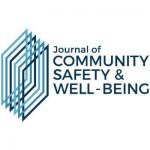LEPH2021 addresses the complex and diverse intersections of law enforcement and public health, involving practitioners, policy makers and researchers from these and other related sectors.
, et al published this journal article in the BMJ global health.
Here is the introduction to this article:
Introduction: Different public health approaches in the response to COVID-19
Over the past 6 months, we have witnessed diversity in the spread and severity of the COVID-19 and in the nature and timing of responses to it in different countries and contexts.1 Acute emergencies often mobilise a short spurt of attention and resources. COVID-19 is, however, a protracted pandemic that spreads through and exacerbates socioeconomic inequalities and stresses health and democratic systems in a way that calls for sustained responses from local to global levels.
The ways that different governments have responded to COVID-19 highlight the long-standing tensions between different frameworks and approaches to public health. Broadly characterised, one approach views people as rights holders who should actively be engaged in proactive interventions that address the social determinants of health, in a way that is respectful of rights and of collective human security. In contrast, the second approach sees people as the objects of reactive technical, biomedical ‘command-and-control’ interventions, with biosecurity measures to protect populations against harmful pathogens rapidly implemented alongside authoritarian and militarised approaches when epidemics are seen to threaten socioeconomic and political interests and security. Both approaches integrate knowledge and technology, but do so in different ways and to different ends. While these two frameworks have coexisted, contested and been applied, sometimes together, for over two centuries, COVID-19 has exacerbated the tension between them. This has longer term implications for how public health is understood and health challenges effectively addressed.
In this piece, we highlight deficiencies and harms of a dominant biosecurity, authoritarian framing of public health. We argue for a comprehensive, participatory, inclusive public health approach that integrates rights, social dimensions and diverse sources of knowledge, evidence and innovation and that maintains equity as a critical goal.
The precautionary principle and limitations of individual rights in the interests of public health and safety are well-established norms that go beyond public health and are included in constitutions and laws. When the risk is high and effective population measures exist, such as vaccination or water treatment, decisions may be made centrally to ensure the most widespread protection of the population, especially when no equally effective alternatives can achieve the same population benefits. Central-level measures may be implemented to invest in technologies, guide and support local capacities or to ensure universal coverage. An acute emergency or rapidly unfolding pandemic can provoke demand for centrally driven prompt and wide-reaching action. However, the COVID-19 pandemic presents a complex case, where the intended and unintended impacts of measures implemented at different levels are still emerging.
This protracted pandemic requires cooperation and effective communication between national and local levels, including communities, implemented in a way that safeguards respect for people’s dignity, supports local-level capacities and engages with people’s languages, cultures, knowledge and realities.1 2 Decisions made in public health require evidence from a range of disciplines and sciences, as well as from experiences and perspectives from all levels, with communication on how trade-offs were decided. Effective responses and simplified guidance cannot be imported from one setting to another without adapting them to diverse contexts in ways that are participatory, transparent and generate trust in authorities from implementers and communities.3 While the public health response is not independent of the broader sociopolitical context, its framing and implementation can, however, redress inequities and reinforce social empowerment, cohesion, solidarity and human security.3 As consistently articulated by the United Nations (UN) and its agencies,1 collectively, we are only as free of risk as the most vulnerable in society. If public health practice reflects and does not confront underlying power imbalances and inequalities that generate risk and vulnerability, we will all be insecure. As a global pandemic, COVID-19 thus also requires cooperation, communication and solidarity across countries and international organisations as envisaged in the 2005 International Health Regulations (IHR), the Sustainable Development Goals and the 1978 and 2018 Declarations on Primary Health Care.4
How will we judge the public health response to COVID-19? Was it rights driven, participatory, equitable, compassionate and based on solidarity? Were diverse forms of evidence and experience encouraged, made available and transparently considered? Was the political, values-based ethical nature of decisions and interventions recognised? Were open dialogue, self-reflection, information sharing and active citizenship encouraged?





